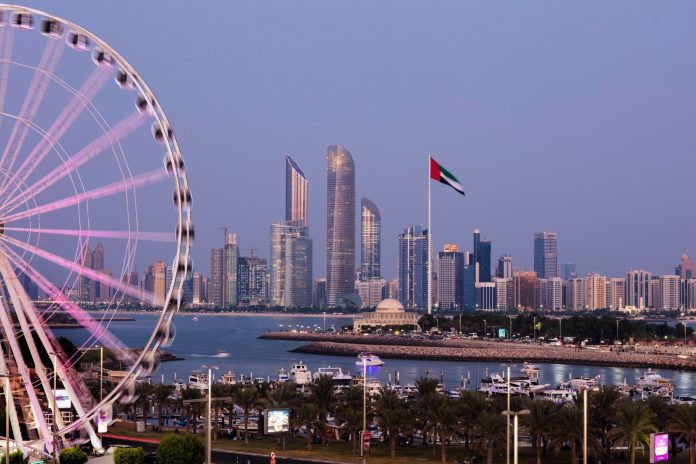
In what is called the most significant change in the US trade policy. In more than a century, the introduction of “reciprocal” rates by the United States is the undulars Astross Global Markets. Aimed at imports from countries with large commercial surpluses against the US, the new policy applies two digit tariffs to 39% in some cases on foreign goods, which affect economies from Asia to the Middle East.
However, while the alarm bells are in many capitals, the United Arab Emirates seem relatively isolated, and equally strategically positioned to benefit from this global realignment.
A different child or rate
Unlike traditional tariffs applied to specific goods or industries, the new US model calculates commercial sanctions depending on the size of the commercial surplus of a country with the United States. The bigger the surplus, the greater the rate. Iraq, for example, faces a 39%reciprocal rate, while China has been hit with 34%, both figures derived from the scale of its commercial deficits with Washington.
The EAU, on the contrary, maintain a balanced commercial relationship with the USA and is subject to the minimum or 10%rate band. More importantly, oil, gas and refined energy products, which constitute a significant proportion of gulf exports, are exempt from these measures, the exposure that reduces exposure for the main exporters such as EAU and Saudi Arabia.
A short -term cushion
In the immediate term, the impact on the EAU economy is expected to be minimal. With its diversified export profile, well -developed free zones and a strong global logistics infrastructure, the Emirates are largely protected from the most disruptive aspects of the new policy.
Key non -energy exports, such as aluminum, gold and electronics, can face modest cost adjustments, but none at the scale that would threaten commercial flows. The most additional, business and investors to the EAU is still robust, especially given the stable political environment of the country and the regulations in favor of companies.
For multinational companies that rethink their supply chains, EAU offer a convincing value proposal: a central logistics center, advanced ports and airports, world class digital infrastructure and strategic access in Asia, Africa and Europe.
Long -term strategic advantage
Looking beyond the short term, the EAU could arise as a winner in the changing world commercial order.
As uncertainty depends on the commercial relations of US-China-EU, many companies seek to diversify the risk. The EAU-ALLADY, a leading re-export and a shopping center, the business center could play a more important role in regional value chains, which offers neutral land for trade and light manufacturing.
In addition, if the United States economy is inclined in the recession under the weight of tariffs and inflation, the Federal Reserve is likely to reduce interest rates. Thanks to the Eau Dirham plug to the US dollar, such movements would translate into cheaper indebted costs for Eau companies, promoting investment in key sectors such as real estate, tourism and logistics.
The continuous economic strategy of the country’s diversification strategy that directs non -oil growth, technological investment and knowledge industries, is well aligned with thesis trends. As others face pressure towards the RUFA, the EAU have already placed the bases for long -term resilience.
The risks remain
That said, the regional exposure to global trends cannot be ignored. If retaliation tariffs between the United States, China and Europe become a broader commercial war, global demand, particularly Asia, could weaken. This would affect both oil prices and export volumes without oil from the EAU.
Supply chain interruptions could also increase entry costs for manufacturers and re -exporters operating from EAU free zones. And if global capital flows slowly, foreign direct investment in emerging markets can be delayed or made.
Even so, the strong fiscal position of the EAU, the reserves of sovereign wealth and the diversified global associations let it be prrippera to absorb these blows.
A rare opportunity to lead
At a time when important economies are becoming inward, openness, neutrality and economic agility of EAU sacrifice a strange opportunity to consolidate their role as a global connector.
While the world digests the implications of the most aggressive tariff strategy in the United States in decades, the EAUs remain focused on building a future -proof economy, one that thrives in collaboration, innovation and intelligent position in a commercial landscape of fractures.
What others see how interruption, EAU can become an opportunity.








